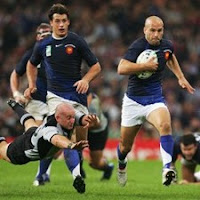Specialty Coffee Quality
Coffee Quality:
The parameters of quality coffee unfortunately remain ill-defined. To answer the more obvious questions about quality, you may want to consider the following:
The really good coffee is becoming harder and harder to find and to purchase. The good stuff comes from remote, high altitude volcanic rainforests. Access is difficult. Lower down in the valley, clear fields, mechanized farming, insecticides and fertilizers even genetic modification yield far greater production and thus profit. The more the indigenous farmers of these remote high mountain family hectors are marginalized the less attentive they are to their coffee production. The historic name recognition associated with the increasingly scarce high quality beans leads to a blending of the good stuff with more abundant coffee thus retaining name recognition while adulterating the quality in the blend. Business is business; the ground coffee may hide defects as well.
Let’s talk about our Guatemala High Mountain Coffee as an example. On a practical level there are 4 elements to its high quality.
- 1st the beans are graded SHB. That is strictly hard bean Arabica. This is the highest grading in Guatemala.
2nd we score the various samples from the high mountain cooperativas by Guatemala's number one tester, (taste tester and cupper as they call it.) Ours all score 89 or higher on the cupper scale, and they know how to do this in Guatemala better than we do here.- 3rd is the roast. The common quality problem with one very popular Roaster for example is unequal size of the beans in their blend, resulting in the small ones burning while the larger ones are just right. This burned taste has even become a sought after feature for its strong rugged taste, but with care dark roast can be achieved without burning; in so doing, it leaves the third cup far more palatable. We use what is called a European prep that screens the beans for size and fragments. Ours is a "single malt" coffee, not a blend. When blending there is the problem of one bean roasting faster than the others. In Guatemala they roast the different beans of the blend individually, whilst in the US, most if not all roasters do them together. Spill some sample beans out on a white counter top and note the faults that I described; from a blend, note the color differences.
- 4th the chemical free nature of the product adds substantially to the quality. Certification is actually no guarantee because there are allowable exceptions, while some of the best beans come from farms that cannot afford certification. Run of the mill beans may be contaminated by most anything from organo-phosphates, fumigation, diesel fumes or another product shipped in the same container. Additionly there is consideration of the storage climate and age of the product. There is obviously a health issue here too.
The SCAA, Specialty Coffee Association, is struggling with a system of grading the specialty coffees. As yet there is no clear quality certification unless you know the terms as above and have access to the data. We think that the American perception of quality coffee needs to include the concept of Fair Trade, documented quality (not advertizing), the healthfulness of the product, the environment and perhaps a bit more discerning palate. There are very few US coffee vendors who give heed to all of the above considerations.



